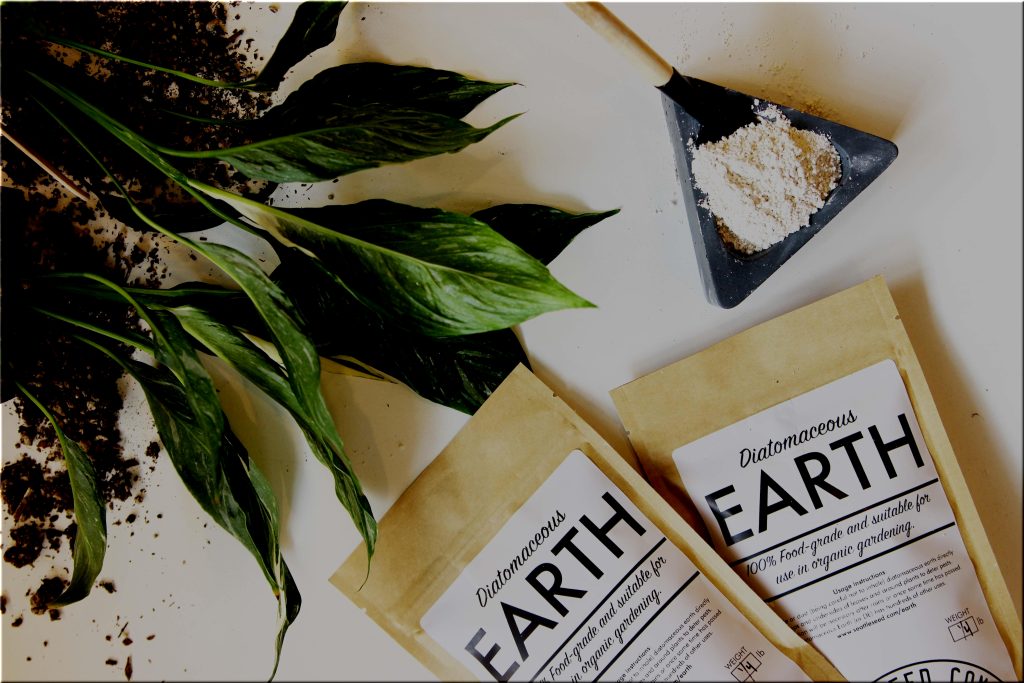Garden
Diatomaceous Earth: Is It Bad for Your Garden Soil? Exploring the Benefits and Potential Drawbacks
Diatomaceous earth (DE) has gained popularity as a natural and effective pest control solution for gardens. But what about its impact on the soil itself? While DE is often praised for its beneficial effects, some gardeners wonder if it might actually harm their soil. Let’s delve into the details to understand how DE can both improve and potentially affect your garden soil.
The Benefits of Diatomaceous Earth for Garden Soil
Diatomaceous earth, derived from fossilized diatoms, offers several benefits for garden soil, making it a valuable addition to your gardening practices.
Improved Soil Structure
DE contains silica, a mineral that improves soil structure by increasing aeration and drainage. This means water can penetrate the soil more easily, reaching plant roots, and excess water can drain away, preventing root rot. Better soil structure also encourages healthy root growth and overall plant vigor.
Enhanced Nutrient Availability
While DE’s impact on nutrient availability is slight, it can make a difference. DE binds to minerals, making them more accessible to plants, and potentially preventing nutrient leaching. This can contribute to healthier plant growth, especially in nutrient-deficient soils.
Reduced Pest Pressure
DE is a natural insecticide that effectively controls crawling insects like slugs, snails, and aphids. The sharp edges of the DE particles physically damage the exoskeletons of these pests, dehydrating them. It’s important to note that DE is generally safe for beneficial insects like ladybugs and butterflies, making it a more environmentally friendly option than chemical pesticides.
Promotion of Beneficial Microorganisms
DE can help promote the growth of beneficial soil microorganisms. These tiny creatures play a vital role in soil health, breaking down organic matter, cycling nutrients, and improving soil structure. A balanced soil ecosystem is essential for thriving plants.
Potential Drawbacks of Using Diatomaceous Earth
While DE offers many benefits, it’s essential to consider its potential drawbacks as well.
Impact on Soil pH
DE has a minimal effect on soil pH, but a slight increase is possible. This increase might not be significant for most gardens, but it’s wise to monitor your soil pH after applying DE, adjusting it if necessary.
Potential for Over-Application
Excessive use of DE can negatively impact soil microorganisms and lead to a decrease in organic matter. It’s crucial to apply DE sparingly and monitor soil health for any signs of imbalance. If you’re unsure about the appropriate amount, consult a gardening expert.
Best Practices for Using Diatomaceous Earth in Your Garden
To maximize the benefits of DE and minimize potential risks, follow these best practices:
Choosing the Right Type
There are two main types of DE: food-grade and pest control grade. Food-grade DE is safe for consumption and is suitable for soil amendments and plant growth. DE for pest control may contain impurities and should be used only for pest control purposes.
Application Methods
DE can be applied directly to the soil, as a topdressing, or to individual plants. For pest control, sprinkle DE around the base of plants or on the soil surface. When using DE as a soil amendment, apply a light layer to the soil surface and work it in gently.
Monitoring Soil Health
Regularly monitor your soil health, including pH and plant growth. If you notice any imbalances, adjust your practices, such as adding organic matter or adjusting your watering schedule.
Conclusion
Diatomaceous earth can be a valuable tool for enhancing your garden soil and controlling pests naturally. By understanding its benefits and potential drawbacks, you can use DE effectively and responsibly, promoting a healthy and thriving garden ecosystem.
FAQ
Is Diatomaceous Earth safe for my plants?
Food-grade DE is safe for plants and can even improve soil health and plant growth. However, excessive use can negatively impact soil microorganisms.
Does Diatomaceous Earth kill earthworms?
While DE can harm some soil invertebrates, it’s generally not considered a threat to earthworms. Earthworms have a tough outer layer that is less susceptible to the effects of DE.
How often should I apply Diatomaceous Earth to my garden?
The frequency of DE application depends on the intended use. For pest control, you may need to apply it weekly or more often. For soil amendment, a light application once or twice a year is often sufficient.
Can I use Diatomaceous Earth on my vegetables?
Yes, food-grade DE is safe to use on vegetables. Apply it as a soil amendment or to control pests, but avoid direct contact with edible parts of the plant.
Can I use Diatomaceous Earth on my flowers?
Yes, food-grade DE is safe for flowers. Apply it as a soil amendment or to control pests that may be damaging your flowers.
Remember, a healthy garden starts with healthy soil. Continue exploring the world of gardening with Goodxtop, and share your experiences in the comments section below!


